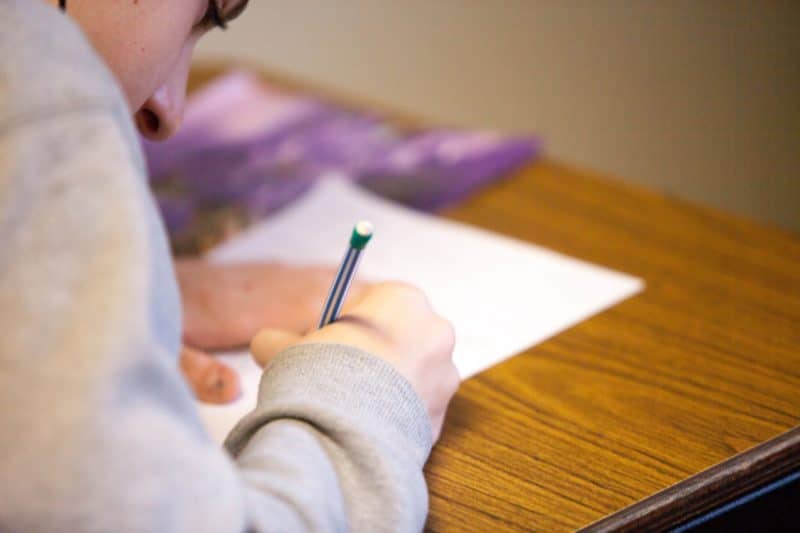
Study Tips for Students to Ace Any Exam
Exams are coming up. These might be your end-of-school-year tests or national exams. They could mean the difference between going up a grade or not, or getting into college.
It is not an overstatement to say you have to study for these examinations. But studying can feel like a chore, and it can be hard to focus.
If you want to make the most of your study time to make sure you get the best grades possible, check out these proven study techniques.
Table of Contents
Start Studying Early in the Term
The earlier in the term or school year you start studying, the less likely you are to have to engage in the frantic last-minute studying that blights the weeks before examinations for many students.
To get the most out of your studies and of your entire school or college experience, aim to get started in the first week.
True, you won’t have a great deal of actual study to do in that first week, but you will have a lot to do in setting up your routine for the year ahead.
Get Organized
Organization is the key to any successful campaign, be it fighting a war, playing a game, or having a successful academic year. In that first week, pay attention to the following:
- Designate a specific area to do all your study in. Make sure it is free from all distractions and equipped with everything you are going to need to make study time both comfortable and productive.
- Keep all your study materials in this area. When you get down to studying, everything is already organized.
- Make sure you can leave your study space when you take breaks. This will ensure you are making a clear distinction between your work life and other parts of your life.
Work to a Timetable
In getting organized, draw up a timetable you will work to. If possible, try to draw up a timetable you will be able to stick to and be prepared to adjust it if it is not working for you.
Try using the following tips:
- Use your school timetable when drawing up your study timetable. Ideally you will work on a subject you have had classes or lectures on that day. It is easier to work on material that is still fresh in your mind. If, for example, you have 6 classes in a day, then you have 6 subject areas to work on that evening.
- Remember, you always get homework. A teacher may not have given you a written exercise to complete but you still have to learn the material covered that day.
- You will not always be able to complete a written exercise overnight.
If, for example, you have an essay or a project to work on, you may need to do it at the weekend. However, take a few minutes on the day the exercise was set to jot down some notes. You could, for example, plan an essay or jot down some points you may use when writing the full essay. - Build in an extra 30 or so minutes to the end of your evening’s study for reading over materials. In this time slot, you will study the material already done during the study session. (We will explain further in the article how to prepare for this.)
By working like this, you have a better opportunity of remembering material and avoid having to do intensive work before an examination. - Don’t forget about the weekends! Apologies but in the life of a student studying at the weekends can be essential.
- Find moments to study around fun. You will find spaces that can be used for that long essay or for finishing part of a project. You might even find shorter gaps of time that could be used to learn a mathematical formula, some vocabulary or a few stanzas of poetry. At the weekend, ensure you revise the week’s work just as you did at the end of each study period. This will ensure material studied during the week is solidified in your brain before the following week’s work begins.
Tips to Use Your Study Time Effectively
Everybody has those study periods where they feel they have learned nothing. Using your brain effectively should stop this from happening.
Try the following pointers to get the most out of your study time:
- Aim to study for 50-minute periods. Longer study periods can be ineffective.
- Take a break. When the 50 minutes are up, take a 10-minute break.
Return for another 50 minutes of study. Repeat the pattern for the duration of your study time. - Vary the material you are working on from each study period. By doing this, you are preventing your brain from becoming tired or refusing to take in material.
- We all have subjects that we love and ones we hate. The subjects we hate are generally the ones we find the most difficult. Try starting your study session with a subject you do not like. In the following session, reward yourself by working on a subject you enjoy. Repeat this pattern throughout the entire study session. By working in this way you can come close to convincing yourself you are enjoying studying!
Adopt a Studying Technique That Works for You
We all learn in different ways. Some of us are visual learners, others learn by repetition, and others by note taking or even by drawing diagrams. You will find your own learning method.
But the most important thing is to keep notes of some type in every learning session. Reduce your textbook or class notes to the essential points and even add on some ideas of your own.
At the end of your day’s work you should have a sheaf of notes. File them away in preparation for use during revision periods or in the run-up to exams. Writing things down also makes it easier to remember them.
And on an aside, file everything. Otherwise, preparing for exams will become a paper chase!
And don’t forget the value of “doing things” while you are studying. For example, if you have a difficult Math formula to learn, find a question and practice using the formula.
Take Care of Your Health
Studying is your job and can be just as stressful as a day spent at a regular job. But there are things you can do to take care of your mental and physical health.
- Ensure you get adequate rest and nutrition
- Use your break times to get fresh air and don’t forget to get some exercise.
- If you feel yourself becoming overwhelmed, try some stress-busting techniques. Yoga, meditation, and mindfulness work well for some people, or you may have techniques of your own.
- Becoming terrified of the reams of work that lie ahead is quite normal in a student’s life. To avoid what can really be a needless fear, try keeping lists for each subject or module.
Make a list of what has to be covered in the subject. When a topic is done in class, give it a tick. Then give it another tick when you have studied it, a tick when it is revised, and again when you feel it is safe.
You will be able to see your course work and where you stand in relation to it at a glance and will be surprised at the progress you are making.
Keep Family in the Loop
This applies especially to people who are studying at home. Many good family relationships have been ruined when the controversy about an offspring’s work raised its head.
Family may feel obliged to get involved in your study and this is more than likely something you don’t want.
A simple solution is to make copies of your timetable or plans for the week ahead. Pin them to the fridge door or any other conspicuous place. They will recognize you are working to a routine and that will lessen the urge to get involved.
A Final Word
School, college, homework, and studying are all challenging. But with the right approach, they are doable. Take proactive control of your upcoming academic year and you will be surprised at how manageable it all can be!
Written by Elizabeth O Mahony
With 25+ years’ experience as a teacher and state examinations corrector, Elizabeth now writes for the education and careers industry. Her experience preparing students for examinations and running an academy for supplementary education give her invaluable insights into what it takes for job seekers and graduates to succeed in assessments.
Sarah is an accomplished educator, researcher and author in the field of testing and assessment. She has worked with various educational institutions and organisations to develop innovative evaluation methods and enhance student learning. Sarah has published numerous articles and books on assessment and learning. Her passion for promoting equity and fairness in the education system fuels her commitment to sharing insights and best practices with educators and policymakers around the world.






